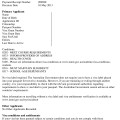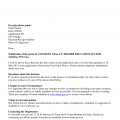SO YOU LIKED STUDYING OVERSEAS AND NOW YOU WANT TO STAY THERE. READ ON!
Inter-Ed works with numerous colleges and universities around the world, placing students who succeed in attaining degrees and a lifetime’s worth of experience in their campus. Partner institutions are located in Australia, France, Germany, the United Kingdom, the United States, Spain, Switzerland, Thailand and New Zealand.
Traditionally, students studying abroad had to return home as soon as they completed their studies. In fact, if during their student visa interview, the consul got the faintest suspicion that the student intended to work after their studies, they would be denied a visa.
Today, however, things have changed. Western countries need smart young people to give them a competitive edge in the information age. Additionally, these same countries also are badly in need of particular skills that their own citizens are either unwilling or unable to do. Countries like the UK, Australia, and NZ have come to the realization that rather than spending large amounts of money to try to recruit and attract the people they want, they would do much better by just letting their overseas fee-paying students remain after their studies. After all, they are oriented and acclimatized to the country, have recognized qualifications from the country, have a strong and stable financial base (otherwise they could not have afforded their studies) and want to live in that country. What better people could you possible have?!
With the changes in the Immigration Laws, what now are the study/work opportunities available to overseas students? Let’s examine them country-by-country:
- AUSTRALIA
- UNITED KINGDOM
- CANADA
- USA
- NEW ZEALAND
*Photos from Tourism Australia
Australia is that great continent down under, known for its remarkable landscapes, from dense tropical forests to seemingly endless deserts, and waves crashing on its beaches. It is also a culinary mecca for those who love dairy, the fruit of the vine, and the taste of lamb. From a cultural treat at the Sydney opera, to messing with crocodiles at a croc farm, visitors to Australia can expect the excitement of contrasts to fill their days.
What is so good about Australian education and training compared to other countries?
Australia is an internationally recognized source of high quality education as well as research excellence. Its universities, vocational and technical education colleges and schools are world-class; and Australia is a world leader in English language courses for international students. The Australian Government legislation requires quality assurance agencies and codes of conduct to be in place so that international students in Australia and their parents enjoy a level of service and financial protection that is unrivaled.
Do I need a visa to study in Australia?
Yes. To be granted a student visa you must complete a visa application form, lodge it with the evidence required, pay the application charge and satisfy the student visa requirements which includes a medical and a chest X-Ray. You can be granted a student visa only if you intend to study a registered course on a full-time basis and comply with a number of visa conditions after you have entered Australia. This is one of the key requirements under the Knight Report that students must demonstrate that they are Genuine Temporary Entrants (GTEs) and Genuine Students (GSs). Visas grants are no longer stamped in students’ passports but are electronically transmitted documents with a unique student number. Currently students applying to study in Australia through Inter-Ed are not required for interview by the embassy.
How much does it cost to study in Australia?
An Australian Government survey showed that in terms of total costs—including tuition fees and living expenses—Australia was consistently less expensive than the USA and UK. Tuition fees will vary depending on the course or institution this website provides average costs as a guide. Living costs too will vary by location, course and lifestyle. As a general average TAFE Colleges cost AUD$15,000.00/year for tuition fees and universities cost between AUD$22,000.00 – AUD$28,000.00/year. Living costs are a little over AUD$1,000.00/month.
Are scholarships available?
Yes. Scholarships are available for international students; however most are offered for postgraduate study in universities. AusAid scholarship selections are conducted by Austrade every year. If you do not belong to the top 2% of the graduating class, don’t even think about it! It’s very competitive. The majority of international students in Australia are full-fee paying students and are not scholarship funded.
Can I work in Australia while I study?
Yes. International students in Australia on a student visa can apply for permission to work up to 40 hours over two weeks during term time and full-time during vacation periods.
Can I stay in Australia after I have finished my course? *
Australia allows students who have successfully completed two years of study in Australia and completed their higher education academic qualification (Bachelors, Masters or Doctorate) to apply for a graduate temporary work permit. These are valid for 2 – 4 years depending on whether the degree is a taught or research degree. Typical career areas that Australia really needs and is actively promoting for migration are in the area of Medical professionals (e.g. Nurses), Engineers (all disciplines), Accountants, Computing and IT Specialists, social Workers, Secondary School teachers and even Tree Surgeons. Some of the most popular and best equipped colleges and universities for these career areas are Australian Catholic University, Curtin University, Deakin University, Edith Cowan University, Macquarie University, Le Cordon Bleu, Box Hill TAFE (Melbourne), William Angliss Institute, ICHM (Adelaide), and Blue Mountain International Hotel School in Sydney. Applications to all these institutions can be made through the Inter-Ed office. In addition, Inter-Ed always advises you to check information about Australian student visas, work permits and migration through the official Dept. of Immigration & Citizenship website which has the very latest information on Australian government policy in all these areas.
*NOTE: Information in this section was accurate when written and posted – 5/23/13
*Photos from UK tourism, Visit Britain and Football UK
While thoughts of the United Kingdom conjure up myths of kings, queens, knights and Game of Thrones, today’s UK is more popular for its vibrant cities, great nightlife, theatre performances, and other attractions. The green and pleasant countryside, however, still exists, providing a genteel flavour to the modernity that now pervades this empire of old. Nonetheless, UK holds dear its icons of the past, from Stonehenge and Tower Bridge to Eton and Oxford, while playing leading roles in fashion, fine dining, clubbing, and shopping.
For those who want to study in any of the prestigious universities in the UK, UKBA has a website (http://www.ukba.homeoffice.gov.uk/visas-immigration/studying/) and a quick guide (!!) about the procedures, but there are also significant changes for those students who want to remain in the UK after graduating. Here are some important points:
How do I qualify for a UK student visa?
You must be able to show that you have been accepted on a course of study at an educational establishment that is on the UK’s Department for Education and Skills (DfES) Register of Education and Training Providers. All government colleges and universities are on this list (though government high schools cannot take overseas students except on one-year student exchange programmes), and most private schools and colleges are on the list. In terms of your chosen course of study, you must be:
- taking recognised full-time degree course (e.g. Bachelor’s, Master’s, Post-Graduate Diploma, Doctorate) or
- a course run during the week involving at least 15 hours of organised daytime study each week (this is a typical requirement for a private college giving skills training), or
- a full-time course at an independent fee-paying school (i.e. not a government primary, middle or high school)
You must also be able to pay for your course and support yourself and any dependants, and live in the UK without employment or needing any help from public funds. If studying at a university, 20 hours of part-time work is permitted, but it should not be he main source of funds for paying the studies. Previously there was another clause that said that you must intend to leave the UK after completing your course of study. However for students taking degree programmes this is no longer the case. After graduation they are permitted to find employment, and if a registered company wants to employ them, the company may apply for a two or four-year work permit for the student. There is no need to return home for this process. The new work permit is issued in the UK and is known as a Tier 2 Skilled Work Visa. Registered companies must offer employment that pays not less than GBP20,700.00/year (for comparison, a Nurse’s starting salary is GBP21,000.00) to meet the criterion for the Tier 2 Skilled Work Visa. However, the intention to return home DOES apply to students taking courses that do not culminate in a degree (e.g. High School, Language course, short cooking course).
Do I need a visa to study in the UK?
You will need a visa if you:
- do not come from the UK, EU, EEA or Switzerland.
- are stateless (you don’t have a nationality)
- hold a non-national travel document, or
- hold a passport issued by an authority that is not recognised in the UK
What supporting documents should I include with my application?
The institution you will be attending, once you have received an Unconditional Offer from them and met their conditions for admission, will issue a CAS (Confirmation of Admission for Student). The CAS is sent electronically to the UK embassy where you will be applying for your visa. You will also be sent a copy. All documents listed on the CAS as the basis for your admission must be presented to the embassy. This will include things like your High School or College transcript, your IELTS result or your college diploma. The embassy will require to see the originals of these to verify their authenticity.
Additionally, the embassy will require proof of financial support for the course of study. This needs to be in an account (in your name, or your parents name) in an approved bank, and the amount required to be shown must have been there for 28 days prior to the visa lodgement and the daily balance must not at any point drop below that amount. This bank document has to be prepared in a specific manner and Inter-Ed assists all of its students with this. How much do you need to show? Tuition fee for one year + living cost for one year (as stipulated by UKBA) – any tuition deposits or fees pre-paid.
Other documents that will be required are your passport, passport sized pictures, Birth Certificate if your parents are supporting your studies and your parent’s marriage certificate, affidavit of support and access to funds, and of course, the application form and fee.
Please note that the British Embassy will probably conduct an interview with you unless you have travelled extensively to Western countries previously.
Can I work?
You can take part-time or holiday work, but you must not:
- work for more than 20 hours a week during term time unless your placement is part of your studies, has been agreed with your educational institution and leads to a degree or qualification awarded by a nationally recognised examining body. This 20 hour rule now only applies to studies at recognised universities and does not apply to tertiary, private colleges. Check out very carefully your permitted part-time work allowance for the institution you may be attending.
- do business, be self-employed or provide services as a professional sportsperson or entertainer, or
- work full-time in a permanent job.
If you are coming to the UK as a student for six months or less, you must ask the Entry Clearance Officer (or the Immigration Officer if you do not need an entry clearance) for permission to work.
Can I switch to work permit employment when I am in the UK?
You may be able to switch if:
- you have completed a recognised degree course at either a UK publicly-funded institution of further or higher education or an approved private education institution (must be approved by NARIQ – check the NARIQ web site for listing) that has satisfactory records of enrolment and attendance
- you hold a valid work permit for employment
- you have the written permission of any government or agency that is sponsoring you, and
- you have not broken immigration law
In summary, if you are going to study a degree programme in the UK, the UK welcomes you to gain employment and adjust to a Tier 2 Skilled Work Visa AFTER completing your studies and provided you comply with the requirements for work status.
*NOTE: This information was accurate at time of posting – 5/24/13
NEW ZEALAND
New Zealand is a country of great natural beauty. Majestic glacial mountains tower over rivers and lakes, while geysers hiss side by side with boiling mud. It is one of the last strongholds of nature, with lush green forests protecting a wide variety of plant and animal life. A visitor to New Zealand will not lack for outdoor activities like tramping (hiking), skiing, rafting, and that quintessential favorite among the adventurous – bungy jumping. The less daring can enjoy swimming with dolphins, jumping around with newborn lambs, watch the whales, or go fishing for trout.
Set against this background of exploration and discovery, studying in New Zealand can become one great and unforgettable experience by itself. But before all that excitement gets the better of you, consider the following items listed by the Immigration NZ:
Requirements
To get a visa or permit to study in New Zealand you, and the course on which you want to study, must meet requirements for international students. There are requirements that you must meet before you can enter New Zealand, and requirements you must meet while you are there.
Offer a Place
To get a student visa, you need to have an offer of a place from a New Zealand education provider.
The offer must include:
• the name of the course and the minimum time required for completing it, and
• proof that the course and course provider meet New Zealand’s requirements for international students, and
• the amount of the fee for the complete course, or if the course is longer than one year, the annual fee, and
• whether you have to pay course fees.
Your course must be approved by the New Zealand Qualifications Authority (NZQA).
Examples of the education providers used by Inter-Ed are AIS St. Helen’s, AUT, Canterbury University, CPIT, NMIT, UCOL, Victoria University, Waikato University, Whiteria Polytechnic and a range of Catholic High Schools nationwide.
Health and character
You have to meet health and character requirements and prove that your intent is genuine.
Evidence of funds to support yourself
To gain a student visa or permit, it must be evident that you are able to meet your living costs during your stay.
Evidence may include:
• enough money held in New Zealand by you, or on your behalf,
• an undertaking by another person to cover your tuition, accommodation and living costs (this has to be shown before you leave for New Zealand),
• an undertaking by a New Zealand sponsor to cover your tuition, accommodation and living costs, or
• financial assistance available to you under aid programmes operated in New Zealand by a government agency.
Passport
You must have a passport that is valid for at least three months past the end of your intended stay.
Permit requirements
Once you have a student permit, you must meet certain conditions during your stay:
• You must attend the place of study noted in your permit. However, you can apply to change your course or institution.
• You must be able to show that you are passing your course.
• You may only undertake work allowed by your student permit.
• You must obey New Zealand’s laws.
• You must only stay in New Zealand for the time allowed by your permit.
If you break any of these conditions your permit may be revoked.
Working while studying
You can work part time while studying full time, under certain circumstances:
• to meet course requirements for practical work experience
• during the Christmas and New Year holiday period if you are in a full-time course of study lasting 12 months or longer, or
• for up to 20 hours in any given week during the academic year if you are in full-time study:
– at a private training establishment or tertiary institution and taking at least two academic years to complete
– culminating in a New Zealand qualification that would qualify for points under the Skilled Migrant Category
– at a secondary school full year study course in years 12 or 13, provided you have written permission from your school and written consent from your parent, or
– in a full-time study course lasting at least six months, at a private training establishment or tertiary institution. Your visa or immigration officer has to be satisfied that the main purpose of your course of study is to develop English language skills, and, at the time of application for a student visa or permit, you have an International English Language Testing System (IELTS) overall band score of 5.0 or above.
In order to work, you will need to have the conditions of your permit changed.
Applying to remain in NZ
Once you have successfully completed your studies or award you may apply for a permit to work in NZ under the Study to Work Policy. The government may grant you a permit for 6 months to look for a job (or from November 2007 – a 12 month permit). When you gain employment you may then apply for permanent residency, which, with the points gained from having a job, assures your eligibility. Even without a job, depending on your qualification, you may be eligible to apply for permanent residency.
Inter-Ed always recommends that you check for all information and updates from the Immigration NZ web site.
THE USA
For many Filipinos, studying in the United States may be the next logical step after finishing high school from local colleges or universities. No matter the cost, a degree from an American university is held in high esteem. To help make this dream come true, be aware of the following excerpts from the USA Study Guide:
U.S. Immigration and F-1 Visas for International Students:
International student visas are issued by the Immigration and Naturalization Department (INS), under the State Department of the United States. An international student visa grants the student permission to enter the USA legally as a student. In order to obtain an international student visa to enter the US, the applicant must meet the following basic requirements:
- The international student visa applicant must be in good health. People who have tested positive for HIV are not allowed to enter the US and will not be issued an international student visa.
- The International student visa applicants must promise to obey all US laws, or risk deportation.
- The International student visa applicants must be able to support themselves financially during the course of US study.
- International student visa applicants must agree to leave the USA after the course of US study is complete.
Note the last point carefully. While internships (OPT) of up to 18 months are permitted after graduation students must return home at their completion. The USA is not open for work or migration after students have graduated. It is important to remember that applying early and providing the requested documents does not guarantee that the international student will receive an international student visa. Also, because each international student’s immigration situation is unique, two students from the same country, applying for the same international student visa may be asked different questions and for different documents.
In addition, international students should be aware that obtaining an international student visa does not automatically guarantee entry into the United States. The Immigration and Naturalization Service (INS) officer at the port of entry into the US has the authority to deny admission even if an international student visa has been granted. Follow all immigration rules and guidelines closely. Obtaining your international student visa is a crucial step towards a successful US education. International students are allowed to work up to 20 hours per week on campus, though this should not be relied upon as a source of funds for paying for the student’s studies. In a new initiative there are now some graduate programs classified as CPT programs that allow international students to work full time while studying. For updates on this please e-mail Inter-Ed on intl_edu_specialists@pldtdsl.net and request information on CPT. Currently we have MBA, MS IT, MS Health care Admin and MS Nursing available for CPT programmes.
OTHER COUNTRIES
In addition to country-specific study/work opportunities, many study areas give great work-study experiences — Hotel and Restaurant Management courses, in particular. Whether you are studying at Les Roches in Switzerland, ICHM or Le Cordon Bleu in Australia, 5 months of each year is allocated for paid industry experience and is a mandated part of the course. IHMES in the UK is slightly similar, where students undergo paid practicum at the end of the term. Second year students can take as long as 24-36 weeks.
The work aspect of study/work opportunities gives you many benefits including:
- Having an independent source of income.
- Gaining experience in your chosen industry overseas.
- Providing you with genuine content for your CV/Resume when applying for a full-time position. Your CV will demonstrate practical international experience, as well as academic competence.
- And of course, the money!
Canada is now also on the radar for Study/Work/Migrate programs. Students from the Philippines can take Applied Bachelors degrees at institutions like SAIT, whereby they undertake 36 weeks of academic study followed by 32 weeks of paid work experience which is part of the course. With their Applied Bachelors degree awarded they are then allowed a one year paid internship. That employment qualified them for permanent residency which is processed in Canada while they are there.
Inter-Ed is always happy to provide FREE COUNSELLING for any student who wants to know about STUDY/WORK/MIGRATE programs. Call us NOW on 819-1001/02 to set an appointment to find out which program and which country is best for you.
Call +63 (2) 819-1001/02 or e-mail intl_edu_specialists@pldtdsl.net
or text +63 (918) 904-1282 to set up an appointment for FREE COUNSELING.
[wpv-view name=”sponsor-banner-services-and-fees”]

















